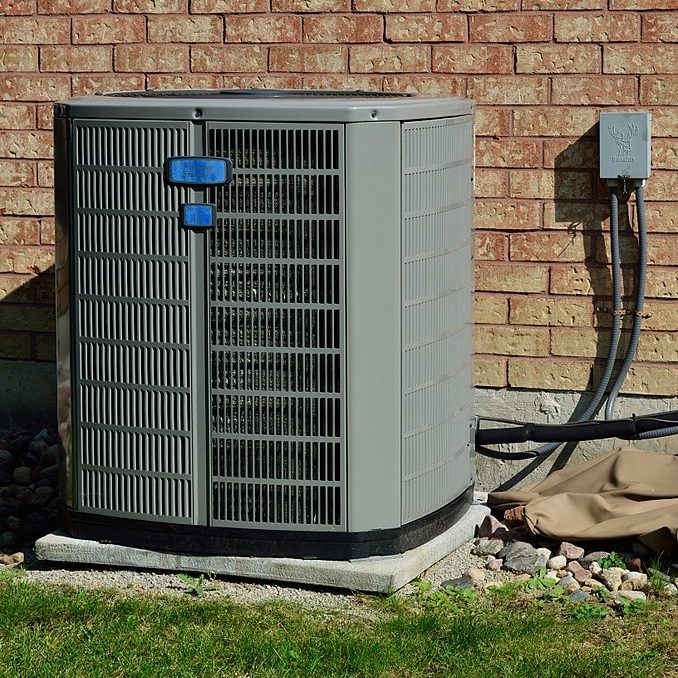February 10, 2022
What to Do When Your AC Unit Freezes Up

If your air conditioner has been working hard to keep up with outside temperatures, and it suddenly starts blowing warm air, chances are, it’s frozen up. While it’s a serious issue that needs to be addressed immediately, a bit of troubleshooting is often all you need to fix the problem. Our AC repair company in Garner is sharing what to do when your AC unit freezes up so your home is cool and comfortable in no time.
Is Your AC Unit Frozen?
There are two steps to determine if your air conditioner is frozen. First, check a few of your vents, and if there is air coming out, but it’s warm, most likely your AC has frozen. You can verify this in two ways.
First, turn off the air conditioner and check to see if there is a coating of ice on your refrigerant line-set pipe that runs between your outdoor unit and the home’s exterior wall. Next, check your evaporator coils inside the interior AC unit by removing the access panel and examining the copper coils as these may also be encased in ice.
Any ice, whether on the line-set pipe or the evaporator coils need to be removed before you can turn your AC back on. Running it while it’s frozen can burn out your compressor which is a whole new set of problems.
What to Do When Your AC Freezes Up
If you see that your air conditioner is frozen, do not try to remove any ice by hand as this could seriously damage your evaporator coils. Instead, leave it turned off at the control panel as well as shut off power to the unit at your circuit breaker and follow the next steps.
Check Your AC Filter
Typically, air conditioners freeze up because there is not enough airflow moving through to stop humidity and moisture condensation from settling around the coils and freezing up, so your first step is to ensure airflow by changing out your air filter and removing any debris around the outside compressor unit.
Add a Bit of Heat
When your AC unit freezes up, we generally recommend leaving your panel open so air can flow around the frozen coils and melt the ice gradually. However, you can use a hairdryer to speed up the thaw. Too much heat can crack the coils, so we advise using it on the lowest setting at least 12 inches away from the ice and taking your time.
Check Your Coils
Once your evaporator coils are thawed and visible, look over them for any dirt, debris, or dust build-up as this can also hinder airflow and increase the likelihood of your unit freezing up. A bit of compressed air held at least three inches away from the coil can remove a coating of dirt and debris, or you can use a solution of warm distilled water and a few drops of mild dish detergent in a spray bottle with a soft-bristled brush to clean the coils. If you use this method, follow with a rinse of clean distilled water to remove any soap.
Turn on Fan Mode
Once the ice has melted, the filter is changed, and the coils are clean, the unit needs to dry out. Turn on the system at the control panel and breaker, switch it to “fan-only” mode, and let it run in this mode for a few hours to dry.
Schedule Air Conditioner Repair Service Today
If your air conditioner is frequently freezing up, or the troubleshooting tips we’ve shared aren’t taking care of the issue, it may be time to call in the pros as there may be a mechanical issue or a refrigerant leak causing the problem. We have an experienced team of certified air conditioner repair technicians who will find the problem and have it fixed quickly so you can feel confident that your home will stay cool and comfortable through the hottest summer days. Schedule service today by calling [phone] or filling out the form below to get started.

